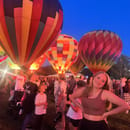As a little girl, I adored Cinderella. I forced my parents to sit through the movie at least a thousand times, and my dream of finding Prince Charming was as bright as any other girl’s fantasy on the playground. I was too young to understand the complexities of the media’s portrayal of women, but I sensed that something was wrong. The princesses’ acceptance and need to be rescued seemed weak, which was confusing because they were designed to be my role models. Their salvation at the hands of the handsome prince glorified being a damsel in distress instead of a strong force of nature. This was the first of many experiences that led me to call myself a feminist.
During elementary school, our physical education teachers instructed boys to do regular push-ups while girls did “girl” push-ups. I didn’t understand why I was not encouraged to do the same exercise as the boys. It seemed unfair that we had to do less work. My parents always encouraged me to have my own opinions and respectfully share them, but sometimes when I thought I was demonstrating leadership skills I was called bossy, so I stayed silent.
In middle school, many adolescents become accustomed to societal sexism and stereotypical gender roles, and these become part of their developing identities. Shortly after I turned thirteen, I was sexually harassed by two boys during English class. Although I thought I was strong, I suffered in silence and was unable to ask for help or independently stop the harassment. I was confused about how I could simultaneously feel shame, fear and rage. Those emotions helped me find my voice.
In high school, I channeled this anger into action, and I started to pay attention. I found statistics and learned that one in three women will be sexually harassed and one in five women will be raped in her lifetime. I learned about other countries where women faced far greater obstacles than I could imagine. I watched the news and listened to a presidential candidate brag about sexual assault. I talked to my friends and realized that their stories were very similar to mine. I remember a friend of mine being told that she would make an excellent secretary one day. Another was abused by her boyfriend. One was told that she was “asking for it” because she was wearing a crop top. We were catcalled as we walked to the coffee shop down the street. I failed a chemistry test and was told by a classmate that it was fine because “girls weren’t supposed to be good at science anyway.” My government teacher told our class that none of the female candidates in the 2020 election seemed “presidential enough.” These experiences have not stopped and will continue as we go off into our future lives, but I am hopeful.
I am not only a feminist because of the experiences that I have but because of the incredible power and strife that I have witnessed in my fellow women. Progress has been slow, but it is there. Our world only gets better every time someone challenges the status quo. No victory is too small or insignificant. I became a feminist because of the countless times people I care for and I felt implicitly or explicitly torn down or overlooked because of our gender, and I want to change that. I am a feminist because I believe humanity and equality should be synonymous. I want to support and empower women to a place of social, political and religious equality.


